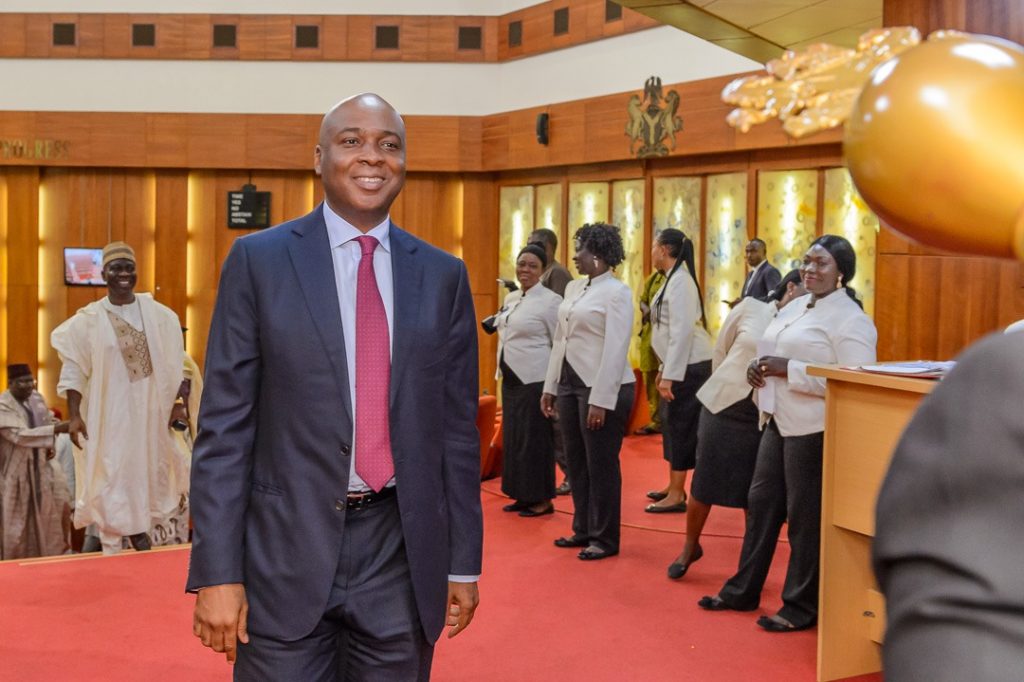A Federal High Court in Abuja has stopped the Economic and Financial Crimes Commission from investigating Bukola Saraki, Senate President of Nigeria, Igbere Tv reports.

The EFCC had said it would investigate Saraki’s earning while he was the Governor of Kwara State from 2003 to 2011. Saraki, who described the investigation as a witch-hunt, approached the court, filing two charges in order to restrain the anti-graft agency from probing his earnings and emoluments.
Sunday Onubi, Saraki’s lawyer, charged Abubakar Malami, Attorney General of the Federation; Department of State Services; Muhammed Adamu, Inspector General of Police; Independent Corrupt Practices and other related Offences Commission (ICPC); and Code of Conduct Tribunal (CCT); alongside the EFCC.
Justice Taiwo Taiwo who presided over the case ordered the EFCC to suspend the probe. Delivering the ruling, Justice Taiwo stated that the interim order is in the exercise of “its discretion judicially and judiciously applied by the law and statues.”
He added, “By the provision of Order 4(3) of the Fundamental Rights Civil Procedure Rules, 2009, the court may, if satisfied that the applicant may be caused hardship before the service of an application where liberty or life of the applicant is involved hear the application ex parte upon such interim reliefs as the justice of the application may demand.
I am of the view, after due consideration of the aforesaid, that this court ought to make the order being sought by the applicant pending the hearing and determination of the originating motion on notice.”
Sunday Onubi, Saraki’s lawyer, charged Abubakar Malami, Attorney General of the Federation; Department of State Services; Muhammed Adamu, Inspector General of Police; Independent Corrupt Practices and other related Offences Commission (ICPC); and Code of Conduct Tribunal (CCT); alongside the EFCC.
Justice Taiwo Taiwo who presided over the case ordered the EFCC to suspend the probe. Delivering the ruling, Justice Taiwo stated that the interim order is in the exercise of “its discretion judicially and judiciously applied by the law and statues.”
He added, “By the provision of Order 4(3) of the Fundamental Rights Civil Procedure Rules, 2009, the court may, if satisfied that the applicant may be caused hardship before the service of an application where liberty or life of the applicant is involved hear the application ex parte upon such interim reliefs as the justice of the application may demand.
I am of the view, after due consideration of the aforesaid, that this court ought to make the order being sought by the applicant pending the hearing and determination of the originating motion on notice.”







